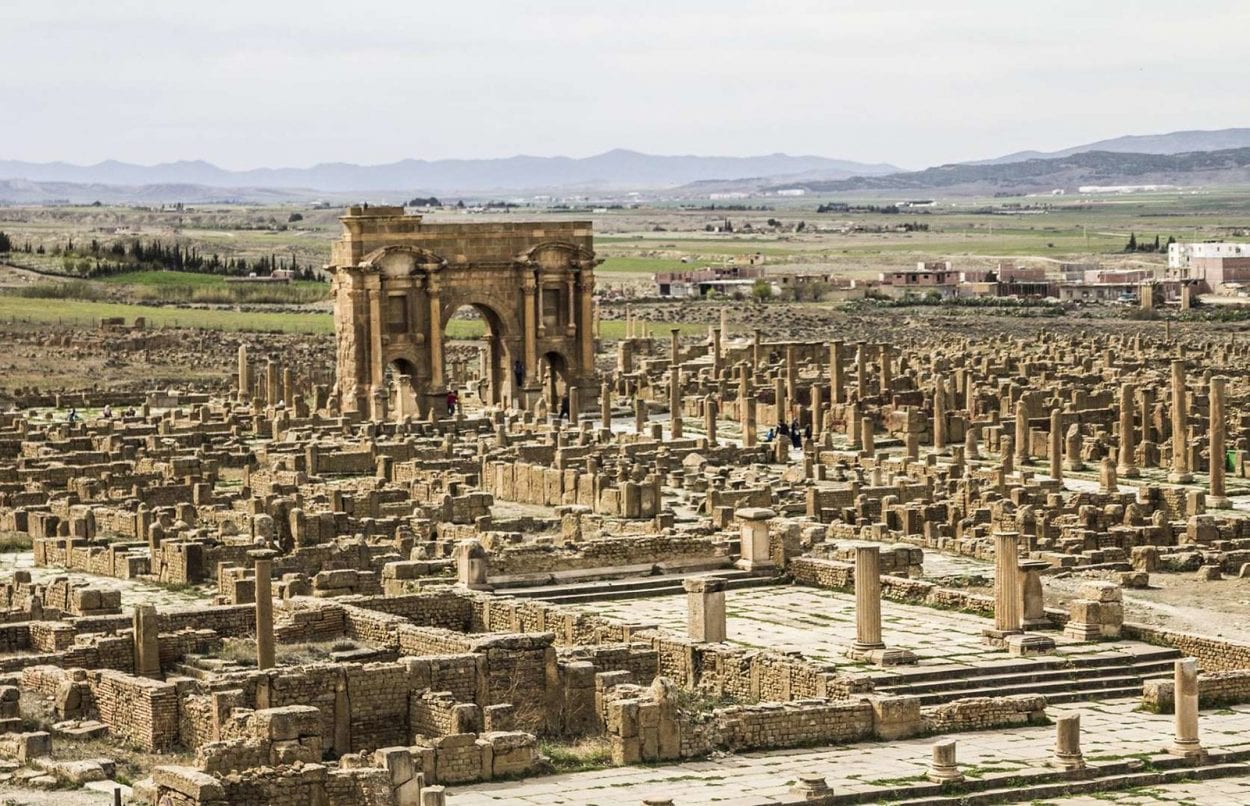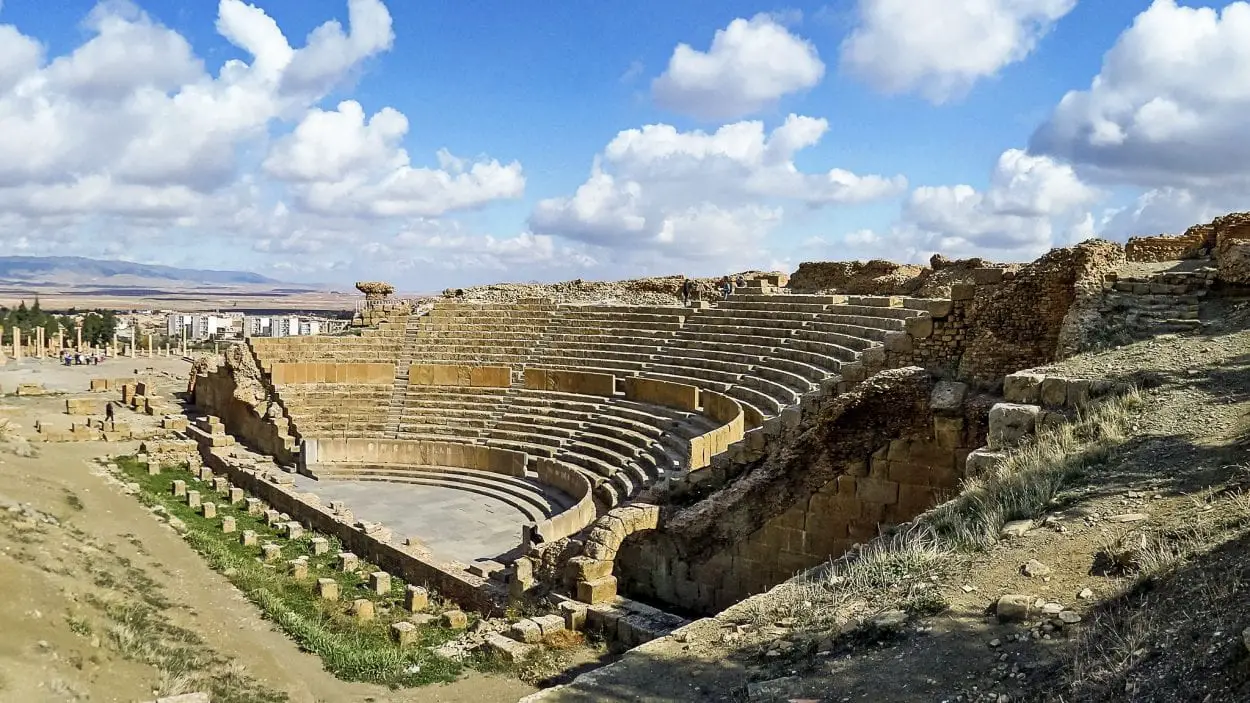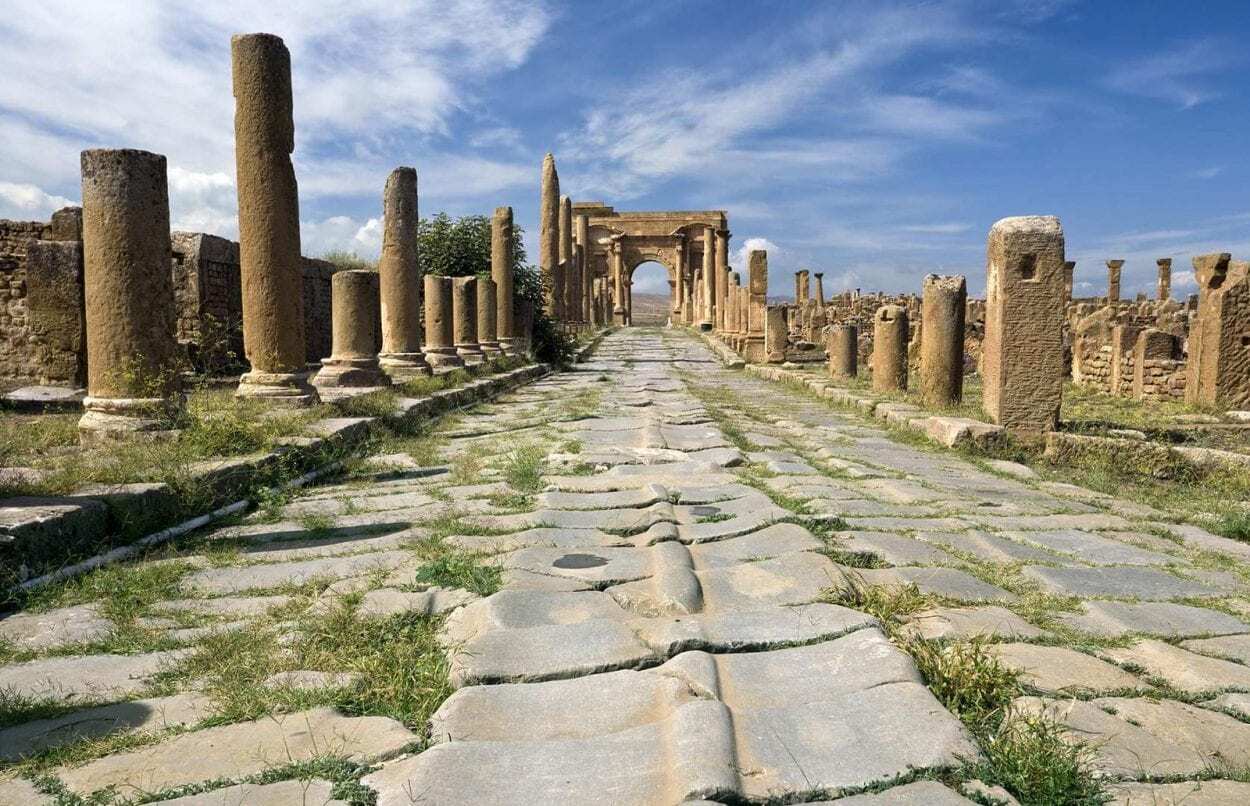Timgad, also called Thamugas or Thamugadi is an archaeological site and ancient Roman city, located near the modern-day town of Timgad in the Aurès Mountains of Algeria.
Timgad was founded by Emperor Trajan around AD 100 as “Colonia Marciana Ulpia Traiana Thamugadi” and served as a Roman colony for veterans of Trajan’s army.
The colony was intended to function as a bastion in Roman Africa against the Berbers, a mix of ethnic indigenous inhabitants who resided mostly in North and Western Africa. The Berbers would eventually emerge into several Berber Kingdoms, with some serving as client states of the Roman Empire.
Timgad was built in a typical Roman grid system at the intersection of several major Roman roads. The city quickly grew into a centre of trade and commerce and had a peaceful existence for the first several hundred years after its founding. Timgad consisted of many temples and bathhouses, a public library, forum, markets, a theatre, basilica, and dwellings of various status.

The city started to decline after being sacked by Vandals in the 5th century and suffered the same contributing factors that effected most Roman population centres in the Western Empire.

The Germanic incursions disrupting the ability to properly maintain an economy and effectively tax its populous, the mismanagement by consecutive Emperors, a reliance on mercenaries without a strong standing army, and the loss of territory all contributed to a widespread deterioration of the Western Roman world.
In AD 535, the Byzantine general Solomon found the city empty when he came to occupy it during the Vandalic War and founded a Byzantine Fort in AD 539. In the following century, the city was briefly repopulated as a primarily Christian city before being sacked by Berbers in the 7th century. The Arab invasion brought about the final ruin of Timgad which ceased to be inhabited after the 8th century AD.
Image Credit : Alan & Flora Botting – CC BY-SA 2.0





